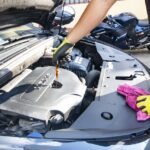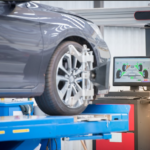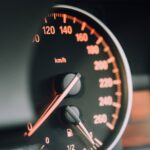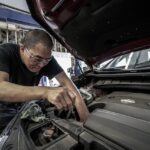When buying a used or second-hand vehicle in the UK, it’s essential that you take the necessary measures to ensure that the car you have purchased is safe, legal and roadworthy. As well as taking the necessary steps to ensure that the vehicle and associated transaction are above board, you’ll need to conduct some physical checks to double-check that the car is up to scratch.
Used car sales through the roof
In recent years, the cost of used and second-hand cars in the UK has risen considerably, with prices shooting up by 19.5% in less than a year. While the used auto market experienced a much-needed plateau in mid-2022, British consumers are still feeling the effects of the price rise, compounded by the cost of living crisis, rising fuel prices and a fall in real disposable incomes. Rocketing second-hand car prices may be attributed to supply chain issues, which have affected the production of new vehicles since the COVID-19 pandemic. With more prospective buyers flocking to the used car market to fill the void of new car production, second-hand car sales are through the roof and demand is higher than ever.
5 things to check when buying a used car:
Although the majority of used car dealers and private sellers will be honest and trustworthy, it’s important that you conduct checks on the vehicle to ensure that it’s up to scratch – by taking these precautionary steps and going with a reputable seller when buying a used or second-hand car, you should be able to avoid purchasing a dud car that’s damaged, stolen, illegal or unsafe to drive:
Engine
Seeing as conventional petrol and diesel-powered vehicles rely on their engines to function properly, it’s essential that you check and double-check that your used car engine is in good working order. If you’re on the lookout for reliable used cars in rancho cordova, a thorough engine inspection is crucial to ensure a smooth and satisfying driving experience. In particular, pay close attention for any fluid leaks or blown head gaskets and also check that the car’s oil is not dirty, discoloured or inconsistent – this can be easily done using a dipstick. Inspect the engine for signs of physical wear or poor maintenance before making a purchase. You may also request vehicle details from the DVLA to learn more about a car’s history.
Gearbox and clutch
Double-check that the vehicle changes gears smoothly and that the gearbox ‘feels’ correct to the touch when manipulated – if you come across resistance or grinding when changing gears, this could indicate a serious problem. Similarly, ensure that the clutch biting point sits around the middle of the pedal path.
Bodywork
While aesthetics are important, checking the bodywork of the car is a quick and easy way to identify any damage or problems before purchasing. You can easily visually inspect the vehicle for signs of wear, repairs or poor maintenance such as replacement panels, dents and chips on the body.
Wheels and tyres
Ensure that all 4 wheels and tyres (plus the spare tyre) are free from signs of physical damage, such as wear and grazing. Dented, warped or bulging wheels are unsafe and should be changed immediately. Check that the tyres are in good condition and that the tread is at least 1.6mm deep before making a purchase.
Interior
Last but not least, you’ll need to check the interior of the car, including the seats, steering wheel and upholstery. Old, shabby or damaged car interiors could indicate a higher mileage than is listed by the seller, so be careful!
Related Posts












